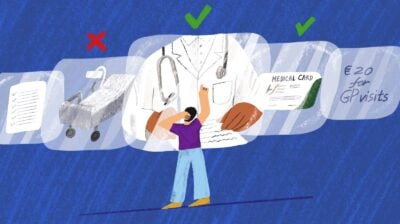What effect do supplements have on my body?
From weight-loss supplements to supplements for colds, dieticians do not recommend taking them

A variety of supplements are widely available online, at health stores and pharmacies around the country each claiming to be of benefit to the body in some way. Regardless of whether the supplement is designed for weight loss, muscle gain or health benefits, there is little evidence that they work and are not recommended by dieticians. For the majority of us, eating a healthy balanced diet is enough to achieve our total daily requirements and supplements would not be routinely recommended. If you choose to take supplements, taking too many or taking them for too long could be harmful to your health.
Do weight-loss supplements work?
Weight-loss products are available to buy online and over the counter. These supplements claim to contain herbs or substances that speed up the rate at which our bodies burn calories, block the absorption of fat in the body or promote feelings of fullness.
There is little evidence that weight-loss supplements work. Although “clinical trials” often prove that their products work, independent research normally finds that weight-loss products do not do what they advertise. Many ingredients in weight-loss pills carry dangerous side effects such as heart palpitations, stomach pain and throat blockage. Also, those supplements which claim to contain fat blockers may decrease nutrient absorption, leading to vitamin and mineral deficiencies.
Many diet pills are simply a combination of caffeine and other diuretics, which cause water loss. Initially this results in a lower number on the scale, but this is not true fat loss and the water weight will return. Additionally, extreme water loss due to diet pills can cause dangerous dehydration.
Long term weight loss requires a change in your eating and exercise habits to adopt a healthier lifestyle. Taking a pill as a quick-fix method does not encourage you to gain a better understanding of how foods and exercise affect your weight. If you are looking to lose weight in a healthy way you should speak to your GP or a registered dietitian. It is never recommended to buy weight-loss products on the internet because of the extreme risk of side-effects as they may not have regulated approval.
For more information on maintaing a healthy weight click here. If you are worried about how much time you spend thinking about your body image, you might want to talk to someone about it. Jigsaw is a youth counselling service for people age 12-25 where you can talk to someone about your body image and how you feel about yourself. You can also call BodyWhys, the Eating Disorders Association of Ireland, on their Helpline 01 210 7906.
Do supplements for colds work?
Vitamin C, zinc and echinacea are often advertised as supplements which will make us less likely to catch a cold.
Vitamin C is found in many of the foods we eat such as citrus fruits like oranges. The recommended daily allowance of vitamin C is 80mg and most people will get this by eating a balanced diet, as one orange contains about 70mg of vitamin C. Vitamin C is also found in all fresh fruit and vegetables. So if you have a balanaced diet you do not need to take vitamin C supplements.
If you do decide to take them however you should always read the instructions, and chat to your pharmacist if you have any concerns about taking vitamin C.
There is some evidence that taking zinc may ease the symptoms of a cold. Always take zinc supplements in line with the instructions, and chat to your pharmacist if you have any concerns about taking zinc. However, the best way to protect your immune system is to consume a healthy balanced diet, drink enough water, exercise regularly, and maintain good hygiene practices.
Should I buy health supplements?
If you are thinking of taking health supplements there are several questions you may want to ask yourself before you choose to buy:
- Why do I want to take supplements?
- What do I think this product can do for me?
- Is there solid evidence suggesting that it will work?
- Could it cause me harm?
- What do doctors or dietitians say about the supplement?
- Do I already have enough of what this supplement gives me from my everyday diet?
- If not, are there changes I can make to my diet for it to become balanced?
- Is it worth the money I will spend for the results I might, or might not, get?
If you decide to take supplements talk to your GP or a registered dietican to ensure you are not taking more than the recommended intake.
For more information on protein supplements click here.






